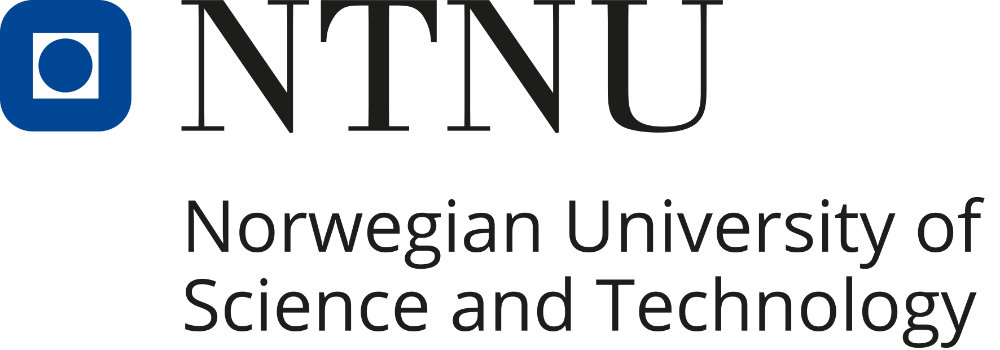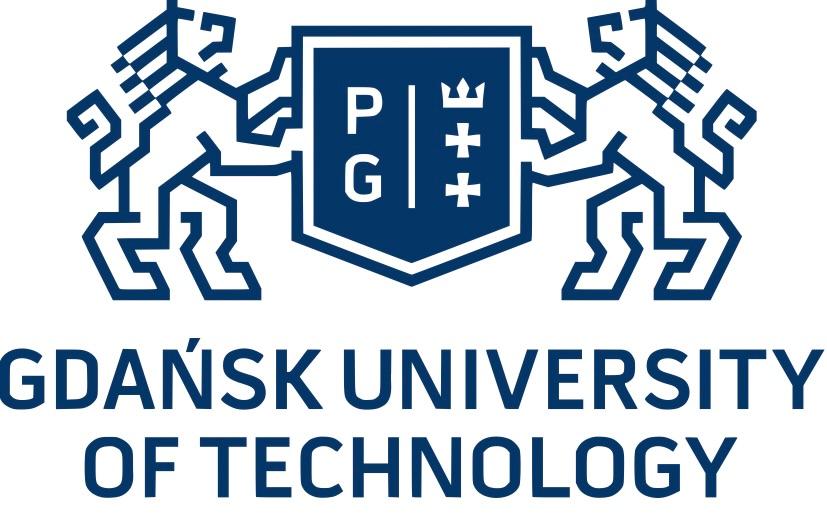Programme
PROGRAMME
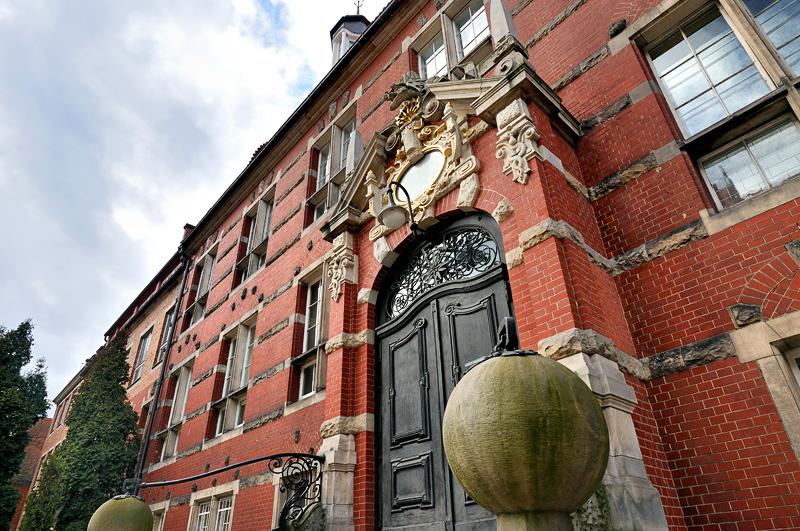
Wednesday 4 October
19:00-21:00 Welcome Reception (optional)
19:00-21:00 Welcome Reception (optional)
Participants will be responsible for covering their own meal expenses.
The venue: TYGLE Gdańskie
Thursday 5 October
08:45-09:30 Registration and Welcome Refreshments
08:45-09:30 Registration and Welcome Refreshments
Venue: In front of Aula Room, 3rd floor, Gdańsk Tech Main Building
09:30-09:45 Opening Remarks
09:30-09:45 Opening Remarks
Krzysztof Wilde - Rector of Gdańsk University of Technology
09:45-10:15 Keynote Speech by Frank Moulaert - The smart city: But where are the citizens?
09:45-10:15 Keynote Speech by Frank Moulaert - The smart city: But where are the citizens?
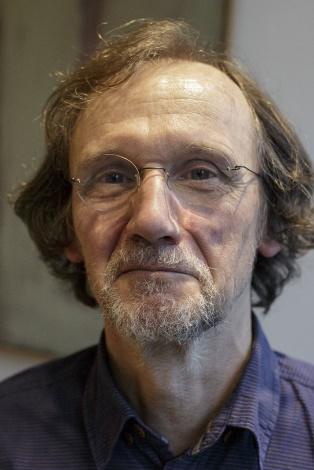
Frank Moulaert is an eminent scholar in Social Innovation, Territorial Development and Regional Innovation Systems. He is Emeritus Professor of Spatial Planning, Faculty of Engineering, KU Leuven, Belgium. He has been the Head of the Planning and Development Unit ASRO, and Chairman of the Leuven Research Centre on Space and Society, He was the Academic Coordinator of the Policy Centre ‘Spatial Planning and Housing’ of the Flemish Region. His research covers urban and regional development, social science theories and methods, but especially social innovation.
Frank Moulaert has coordinated six European Framework projects (SOCIALPOLIS, KATARSIS, DEMOLOGOS, SINGOCOM, VALICORES, URSPIC) and has worked on numerous regional, national and international research platforms in the course of his academic career. He continues his passion for societal change through research and community work. He is interested in issues around the governance of socio-ecological systems (role of social innovation); and, operationalizing sustainable lifestyles through social innovation. He has written various policy reports. He published books, chapters, journal articles, besides editing special issues of peer-reviewed journals. His works have been translated and published around the world in Dutch, English, French, German, Italian and Spanish.
Summary of the speech:
Over the last few decades various metaphors have been used to typify the (changing) nature of the city. To name just a few: the Knowledge City, the Informational City, the Global City, the Transactional City, the Good City, the Socially Connected city, the Smart City, ... There are many more such metaphors, but I was asked to give a keynote address, not a series of lectures in which I could deconstruct and connect these metaphors. Yet I will use some of the features of these metaphors to examine if the Smart City is really as smart as its glorifiers suggest. Talking about human life in a city, means talking about Citizens in the City. But does the Smart City (discourse) take humans as humans? What is the view of 'what is a human' in the Smart City discourse?
First, I will briefly situate my intervention in the ongoing - yet unfortunately not taken serious - dialogue about the interaction between discourse and the Real; or, expressed differently, between pretended reality and tangible reality as it affects our human life. To that purpose, I will dwell on the meaning of human life beyond the 'One-dimensional man'.
Second, I will situate the interaction between the discourse and the practice of (building) Smart cities using the terms of the broader discourse-reality debate. To stay within time limits, I will limit myself to the digitalization of urban life. The main question I will address is how digitalization nourishes or impedes the human emancipatory potential - is it an instrument to foster the universalis civis or does it reinforce the one-dimensionality of the citizen?
Finally, I will give some reflections on how the Smart City could avoid outsmarting itself. in this flow of thought, I want to share with you the (smart) idea that intelligently urban metaphors could make the smart city discourse more urbane and more in tune with complex urban reality inhabited .
10:15-10:45 Keynote Speech by Rohit Sen - 100% Renewable Energy – A Key Milestone on the Road to Climate Neutrality
10:15-10:45 Keynote Speech by Rohit Sen - 100% Renewable Energy – A Key Milestone on the Road to Climate Neutrality
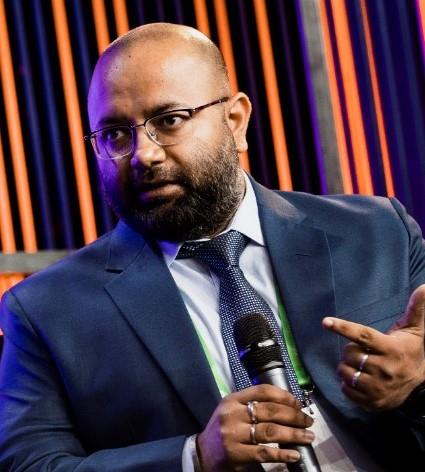
Rohit Sen is the Head of Sustainable Energy at ICLEI -Local Governments for Sustainability (ICLEI), World Secretariat in Bonn. Rohit is a senior energy expert with more than 13 years of professional experience, focusing on renewables, energy management and project finance, spanning across Germany, India, Scotland, and Sub-Saharan Africa. He is also a Certified Expert on Financing NDCs. He has worked on projects pertaining to renewable energy, energy access, green buildings, e-mobility, energy efficiency and sustainable energy finance.
Summary of the speech:
To address the climate emergency and to achieve a sustainable net-zero and climate-neutral future, it is imperative that we intensify our collective efforts towards developing and implementing a renewables-based sustainable energy transition, coupled with energy efficiency and energy conservation measures. However, this transition will vary across cities, depending on their unique circumstances and sectoral priorities. Furthermore, depending on the city's energy consumption patterns and available resources, certain sectors may be initially prioritized over others, such as transportation or industry. Cities and regions are on the frontlines in setting renewable energy and net-zero emissions targets and implementing them while taking their communities’ priorities into account. Not only are local and regional governments (LRGs) transitioning towards a renewables-based future to mitigate their communities’ impacts on the climate, but they are also aiming to improve their resilience and adaptive capabilities, creating sustainable, healthier, and more liveable urban environments. While LRGs play a vital role, they do encounter certain challenges and barriers along the way. They face challenges when implementing sustainable energy solutions. Effective governance, technological advancements, enabling policies, and access to finance are essential for turning local strategies into action. Coordinated efforts among various stakeholders are required to align incentives, encourage innovation, and bridge the gap with cutting-edge technologies. Additionally, customized methodologies and applications should be considered based on the specific context of each city and region, ensuring a successful and inclusive sustainable energy transition. Additionally, national governments are essential in creating the enabling framework conditions to support this local action. Partnerships and coordinated efforts are needed to move forward rapidly. Effective governance across multiple levels of government, combining top-down and bottom-up approaches, must converge with technological advances, enabling policies and access to finance to turn local strategies into action through various implementation mechanisms. This needs extensive coordinated action across various stakeholders—from utilities to the private sector, from local legislative bodies to local citizens—for a successful sustainable energy transition. Tackling the climate emergency – a security, socioeconomic and environmental crisis – requires the unprecedented transformation of energy systems and an immediate transition to renewable energy across all sectors.
10:45-11:15 Coffee Break
10:45-11:15 Coffee Break
Venue: In front of Aula Room, 3rd floor, Gdańsk Tech Main Building
11:15-12:00 Roundtable Discussion - University as a driving force for urban innovation
11:15-12:00 Roundtable Discussion - University as a driving force for urban innovation
Moderated panel discussion on fostering quadruple helix cooperation between the ENHANCE Alliance (student and academic communities), government (local municipalities), society and industry. The discussion will be under the framework of co-creating a sustainable, climate-adaptable urban future, and how universities can act as a driving force for urban innovation.
Moderator:
Julio Paulos - Associate Director Research, Future Cities Lab Global, ETH Zürich
Panelists:
1. Anne Borg - Rector of the Norwegian University of Science and Technology
2. Frank Mouleart - Emeritus Professor of Spatial Planning, KU Leuven
3. Rohit Sen - Head of Sustainable Energy, ICLEI World Secretariat, Bonn, Germany
4. Piotr Lorens - Gdańsk City Architect
12:00-13:00 Lunch
12:00-13:00 Lunch
Light lunch and mingling for all attendees.
Venue: courtyard of the main building
13:00-17:00 Parallel sessions
13:00-14:45 Urban Innovation Living Labs
13:00-14:45 Urban Innovation Living Labs
Summary
ENHANCE teams are dedicated to the development of interdisciplinary and transdisciplinary activities that will contribute to societal transformation. As such, ENHANCE universities can play a key role in driving responsible societal transformation through transdisciplinary collaborations between science and society. To this end, (Urban) Living Labs can be used as cross-cutting platforms, physical places and social spaces to pilot the processes and prototypes that help to advance transitions in cities towards regenerative, just, and beautiful futures. In this session, we invite all stakeholders, including ENHANCE colleagues, students, and others, to discuss how (Urban) Living Labs may help to facilitate transdisciplinary research for societal transition. Participants will engage in discussion on:
- Strategies & Agendas | by co-creating joint visions,
- Action & Process | by committing to and co-producing transdisciplinary methods and tools,
- Formats & Prototypes | by co-designing implementation pathways and pilots.
Program
13.00-13.10 Workshop Introduction
13.05-13.20 Presentation of Experiences in Warsaw, Trondheim, Aachen and Valencia
13.20-14.20 Break the groups for discussion:
- Strategies & Agendas,
- Action & Process,
- Formats & Prototypes.
14.20-14.45 Summary and conclusion
Session Chair
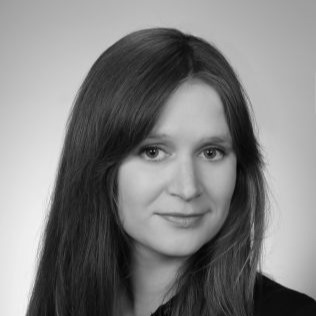
Agnieszka Wendland, PhD, is Assistant Professor at WUT. Her area of research concerns among others spatial planning, urban regeneration, spatial analysis with the use of GIS tools, spatial data mining, social geoparticipation and design thinking. Her scientific output is mainly concerned with issues related to the use of geo-information in the formation and urban development of smart cities, as well as exploratory spatial data analysis and numerical simulation methods using spatial information. She is an author of 56 scientific papers, contributed to many research and development projects, including international (Horizon 2020, Digital Europe, Erasmus+).
Venue
Conference room, Hydromechanics
13:00-14:45 Participatory planning and placemaking
13:00-14:45 Participatory planning and placemaking
Summary
Participatory urban planning and design
This workshop is hosted by ENHANCE PhDs and is open to everyone. The session delves into current participatory urban planning and design practices and its transformative potential. In this two-hour session, we will bring together researchers to critically discuss some key challenges in fostering successful participatory urban planning processes that enable cities’ transitions to climate neutrality while being at the same time inclusive, just, beautiful, and sustainable. Participants will participate in rotating small table discussions that delve into different issues such as the opportunities and limitations of digital participation tools and new technologies, inclusiveness and justice in planning processes, citizen empowerment in placemaking initiatives and the role of trust, conflict and consensus in participatory planning and design. At the end of the workshop, we will reconvene as a group to share our thoughts and discuss ways forward for more just and inclusive participatory planning and design processes.
Programme
13.00-13.10: Introduction: A critical introduction to participatory urban planning – Where are we?
13.10-14.30: Rotating small table discussions
- Digital Participation and new technologies: How can we ensure they include everyone?
- Inclusiveness and Justice: How can we avoid tokenism/symbolic participation in planning processes?
- Empowerment in Planning: How can citizens be more involved in placemaking initiatives in their neighbourhood?
- Transparency and Trust: How do we view conflict and consensus in participatory urban planning?
14.30-14.45: Reflections and wrap-up
Session Chair
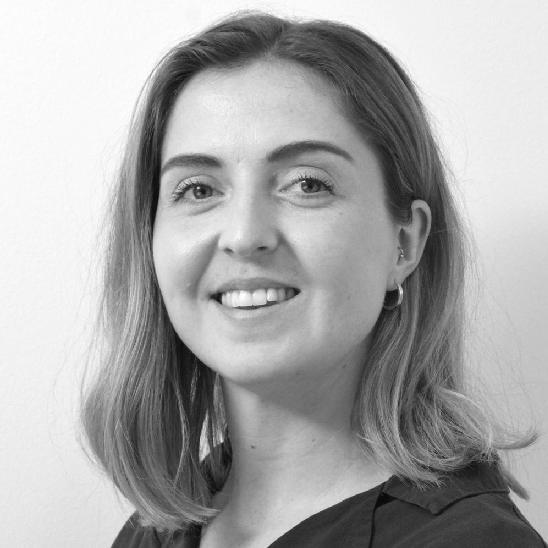
Lina Naoroz Bråten - PhD Candidate, Department of Architecture and Planning, Faculty of Architecture and Design, NTNU
Lina holds a degree in sociology and urban planning and is now a PhD Candidate at the department for architecture and planning at NTNU in Trondheim. The PhD project aims to study how temporary space interventions can help increase social interactions in public spaces in Nordic urban neighbourhoods. Her project focuses on the democratic right to participation and access to public spaces and experimental urban design and planning approaches such as temporary and tactical urbanism.
Venue
Room no. 205, Main Building
14:45-15:15 Coffee Break
14:45-15:15 Coffee Break
15:15- 17:00 Future Synthesizer
15:15- 17:00 Future Synthesizer
Summary
‘Futuring’ provides future-oriented means to enhance design approaches. It offers this by enabling individuals and communities systematically create mutually accepted understandings and trajectories towards anticipated futures.
This session introduces participants to the ongoing experiences of colleagues, students, and practise partners at RWTH Aachen University who are developing a qualitative approach to futuring through communicative, collaborative, and participatory processes.
All participants are welcomed to this session, which will provide short and general introduction to state of studies on futuring, the Future Synthesizer concept, and group exercises to help formulate their basic questions, framework, and components for a hypothetical Future Synthesizer experience. Come join us to find out how futuring might help you in your work!
Program
15.15 – 16.00 Introductions: Futuring & Future Synthesizer
16.00 – 16.45 Breakout & Group Work
16.45 – 17.00 Reflections & Wrap-Up
Session Chair
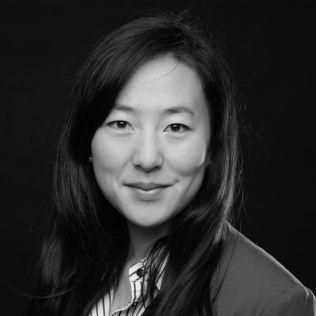
Robin Chang is a PostDoc researcher and lecturer at the Chair of Planning Theory and Urban Development. Her process- and temporality-oriented work draw on her PhD research examining temporary uses in Europe. Prior to this, she practised community and land use planning in Canada.
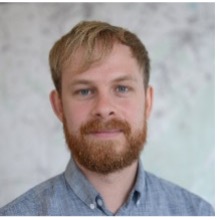
Martin Bangratz works as a research and teaching associate at the Chair of Planning Theory and Urban Development at RWTH Aachen University. He holds a Master of Science in Sustainable Urbanism from the Bartlett School of Planning, University College London, as well as a Masters degree in International Economics and Business Studies from the University of Innsbruck. In his ongoing doctoral studies, he investigates how grassroots initiatives use and develop civic technology to co-create cities. Other interests and thematic foci include social justice, sustainability, and GIS.
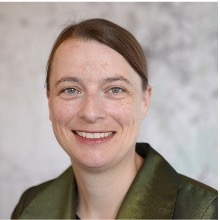
Agnes Foerster is an architect, urban planner, and head of the Chair of Planning Theory and Urban Development at RWTH Aachen University. She researches and designs processes from the urban quarter to the region and is co-initiator of the REVIERa Transformation Platform at RWTH Aachen University.
Venue
Conference room, Hydromechanics
15:15- 17:00 New European Bauhaus Impact Model
15:15- 17:00 New European Bauhaus Impact Model
Summary and programme
The CrAFt Impact Model (IM) is a tool designed to identify essential leverage points for systemic change towards climate neutrality. It takes into account all aspectual layers of sustainability (ecological, infrastructural, social, cultural, economic, aesthetical, legal, etc.) The IM functions both as a documenting and assessing tool and a guidance instrument to improve shared understanding and support for cross-cutting decision-making and implementation between stakeholders from different sectors and disciplines. It aims to develop new approaches and methods for local collaborative governance models that enable cities’ transitions to climate neutrality while being at the same time inclusive, just, beautiful and sustainable.
The workshop is going to further explore the potential of the Impact Model. The workshop will first introduce the impact model and then get feedback from participants on what they understand the impact model and what it can do for the cities via using the campus project at Gdańsk University of Technology (GUT) as a case study. The second half of the workshop will have a brainstorming on how participants can use IM as a tool/handbook/knowledge base in making the climate-neutral transition for the campus of GUT.
Program
15.15-15.30 Impact Model for making city climate neutral
15.30-16.00 Walk-talk on campus project
16.00-16.45 Group discussion on using Impact Model as an instrument for campus project
16.45-17.00 Wrap up
Chair
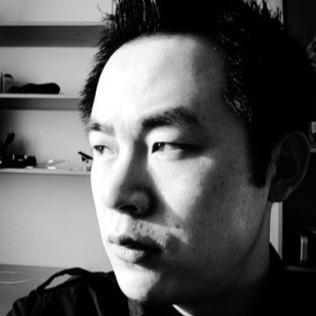
Wang Yu is a senior researcher at department of Architecture and Planning, NTNU Norwegian University of Science and Technology. His research is focusing on the fast urbanization and its impacts on urban inhabitants, heritage conservation and urban resilience. He also holds a part-time position at rector’s office for NTNU-China cooperation. Since 2021, he has been appointed as deputy head of the department for research.
Venue
Room no. 205, Main Building
Friday 6 October
08:30-09:00 Arrival and Welcome Refreshments
08:30-09:00 Arrival and Welcome Refreshments
Venue: In front of Aula Room, 3rd floor, Gdańsk Tech Main Building
09:00-09:30 Keynote Speech by Anna Januchta-Szostak - the Role of Ecosystems in a Regernative City
09:00-09:30 Keynote Speech by Anna Januchta-Szostak - the Role of Ecosystems in a Regernative City
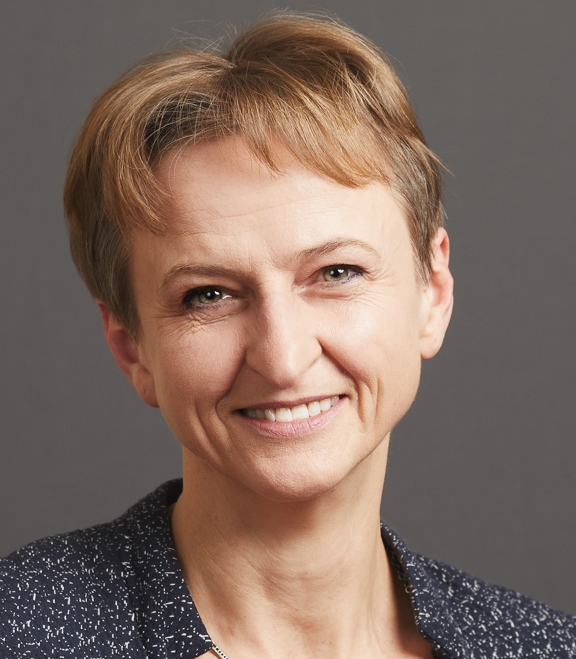
Anna Januchta-Szostak is a researcher and academic at the Faculty of Architecture of Poznan University of Technology, an expert in the field of urban resilience, adaptation to climate change, blue-green infrastructure and integrated urban water management. She is a member of the Interdisciplinary Advisory Team on Climate Crisis at the President of the Polish Academy of Sciences, the Climate Council at UN Global Compact Network Poland, Open Eyes Economy think tank as well as an expert of WaterLab and Retencja,pl. Locally, she cooperates with the city of Poznan in the field of development of the Warta valley, Nature-based Solutions and improvement of environmental quality as well as preparation of the rainwater management strategy for Poznan. She is also a member of the Consultative Council for Environmental and Climate Protection at the Mayor of Poznań. Author of the book “River-friendly cities” (2020), many scientific reports and publications.
Summery of the speech:
To meet the challenges of the environmental and climate crisis, we must move beyond sustainability and regenerate the natural environment. A regenerative city maintains a symbiotic, mutually beneficial relationship with its surrounding hinterland not only by minimizing its environmental impact but by actively improving and regenerating the productive capacity of the ecosystems from which it depends (Girardet et al, 2013). In my short speech I will not develop all aspects of the regenerative approach referring to Climate-Neutral Cities and the goals of the European Green Deal, such as closing loops in water and waste management, improving the energy efficiency of buildings and transport systems, etc.
I would like to focus on managing the ecosystems of urban river valleys, which are the underestimated lifeblood of cities. It is their services that guarantee fresh air, clean water, healthy soil and biodiversity, as well as CO2 sequestration, cooling and buffering weather extremes, and ensure the well-being of citizens. The natural capital and blue-green infrastructure is a key component enabling cities' adaptation to climate change and their liveability. However, urban greenery will not provide the expected ecosystem services if it is unable to address the challenges of a warming climate, expansive and intensive urbanization and their impacts, such as sealing, UHI, ecosystem fragmentation, species extinction, pollution and water shortages. These problems are particularly visible in urban river valleys, which are the last migration routes of terrestrial and aquatic species. Valleys are also recipients of sudden and polluted stormwater discharges resulting from the drainage of entire urban catchments. Only by understanding eco-hydrological processes and relationships can we effectively implement Nature-based Solutions and enable nature to regenerate itself. The best thing we can do is to build ecological awareness and ENHANCE ECOSYSTEMS, because the success of mitigation and adaptation processes, and thus our survival, depends on their productivity.
09:30-10:15 Parallel Sessions Results
09:30-10:15 Parallel Sessions Results
-
Urban Innovation Living Labs
-
Participatory planning: various approaches
-
Future Synthesizer
-
New European Bauhaus Impact Model
10:15-10:45 Coffee Break
10:15-10:45 Coffee Break
Venue: In front of Aula Room, 3rd floor, Gdańsk Tech Main Building
10:45-11:30 Reflection with ENHANCE Board of Directors
10:45-11:30 Reflection with ENHANCE Board of Directors
Topic:
How can ENHANCE work with students and society to overcome the challenges caused by climate change?
Moderator:
Julio Paulos - Associate Director Research, Future Cities Lab Global, ETH Zürich
Panelists:
1. Prof Geraldine Rauch, Chair ENHANCE Board of Directors and President Technische Universität zu Berlin
2. Prof Günther Dissertori, Member ENHANCE Board of Directors and Rector ETH Zürich
3. Agnieszka Wendland - Urban Innovation Living Labs
4. Line Naoroz Bråten - Participatory planning: various approaches
5. Robin Chang - Future Synthesizer
6. Wang Yu - New European Bauhaus Impact Model Workshop
11:30-12:00 Presentation ENHANCE Challenge Winners
11:30-12:00 Presentation ENHANCE Challenge Winners
ENHANCE Challenge Program
The ENHANCE Challenge invited students and staff to develop disruptive solutions to challenges facing European Higher Education Institutions. Since May 2022 the six winning teams have been participating in an incubator programme, with a total funding of 210,000 EUR. They have been developing their innovative projects in the field of diversity and inclusion, and the use of AI in university administration. As the programme draws to an end, we are pleased to welcome representatives of the winning teams to the ENHANCE Summit to present their results. Following a brief pitch from the winning teams, there will be opportunity for questions from the audience.
Representatives of the 6 ENHANCE Challenge winning teams are invited to share a short pitch (3mins) in the final plenary, before receiving their certificates for completion of the ENHANCE Incubator Programme.
ENHANCE Challenge Coordinator: Elena de la Poza (UPV)
12:00-12:15 Closing Remarks
12:00-12:15 Closing Remarks
-
Prof Geraldine Rauch, Chair ENHANCE Board of Directors and President Technische Universität zu Berlin
-
Naveed Syed, Secretary General ENHANCE Alliance
12:15-13:15 Lunch
12:15-13:15 Lunch
Venue: Courtyard, Gdańsk Tech Main Building
13:15-14:15 Student exhibition tour
13:15-14:15 Student exhibition tour
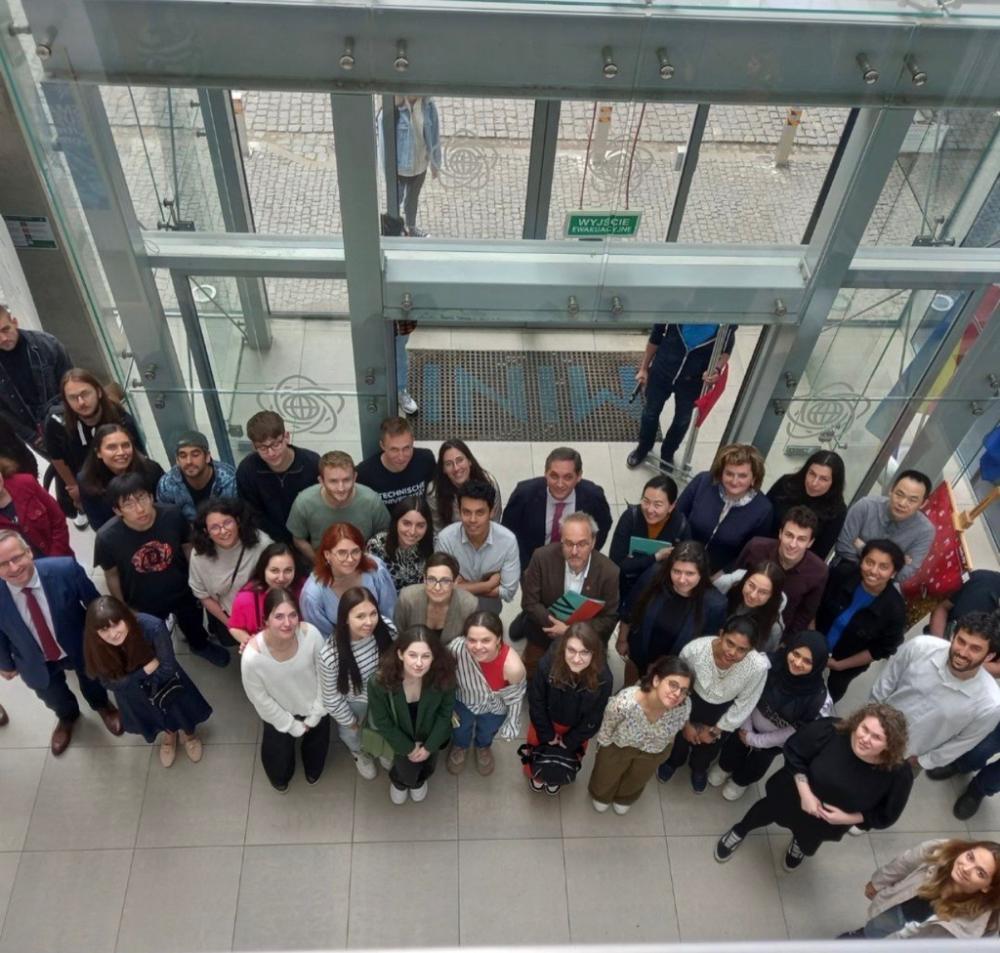
Warsaw University of Technology as part of Enhance Alliance Project organised an international workshop "Smart Sustainable Cities & Communities - Phantom, Menace, or New Hope?" with the participation of 28 students from 8 universities and 6 countries. The workshop continued the online classes conducted from March 1, 2023, by an international group of experts from ENHANCE partner universities led by Prof. Robert Olszewski from the Department of Geodesy and Cartography at WUT. They were conducted within the framework of the Erasmus+ program (Blended Intensive Programme) in cooperation with the Norwegian University of Science and Technology and RWTH in Aachen.
In the Enhance Summit the winners of the workshop will present their prototypes and the other projects will be on display for the Summit participants to visit. For more information please visit the workshops' webpage.
The exhibition will be held in the courtyard of the Gdańsk University of Technology main building on the days of the Summit.
14:15-16:15 City tour (optional)
14:15-16:15 City tour (optional)
Summit Outcomes
Keynote speech
Frank Moulaert - The smart city: But where are the citizens?
Rohit Sen - 100% Renewable Energy – A Key Milestone on the Road to Climate Neutrality
Anna Januchta-Szostak - the Role of Ecosystems in a Regernative City
Parallel Sessions Results
Participatory planning: various approaches
New European Bauhaus Impact Model


